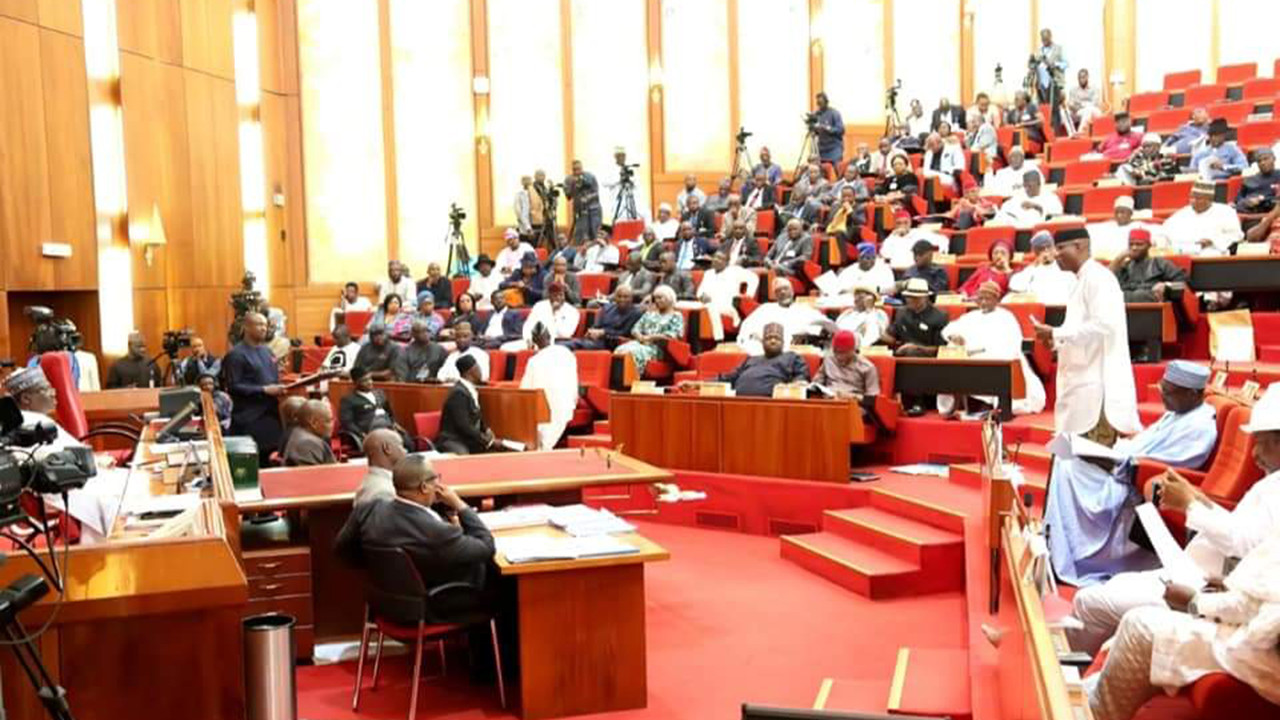The Senate on Tuesday passed for second reading, a bill that seeks to repeal the Customs and Excise Management Act Cap C45 Laws of the Federation of Nigeria and to enact an Act to establish the Nigeria Customs Service Act 2021 which was enacted 63 years ago.
According to the Senate, it became imperative to carry out the repeal of the Act against the backdrop that in this digital age, trade facilitation is the hallmark of any professional organisation and customs administration, operating under the 1958 colonial laws was not the best interest of the country, especially for a country like Nigeria that is grappling with the serious economic downturn.
The bill is titled ” An Act to Repeal the Customs and Excise Management Act, CAP. C45, Laws of the Federation of Nigeria 2004 and to Enact an Act to Establish the Nigeria Customs Service Act 2021( SB.286)”.
In his lead debate on the general principles of the bill, the sponsor and Chairman, Senate Committee on Customs, Excise and Tariff, Senator Francis Alimikhena, who noted that the bill was read the first time on January 29, 2020, said that the proposed bill seeks to bring the Customs and Excise Management Act (CEMA) in line with modern-day reality.
“An analysis of the Customs and Excise Management Act conducted in 2009 found the law to be severely lacking with respect to the World Customs Organisation’s Revised Kyoto Convention (RKC).
“The Customs Excise Management Act (CEMA) as it is today does not contain provisions to support the use of electronic documents, signatures and electronic payment as well as application of risk management and a host of other information technology that are applicable to modern customs administration,” the lawmaker said.
Alimikhena said the bill is aimed at modernising the Nigeria Customs Service to make it competitive in the global quest for trade facilitation.
“The bill will make the Nigeria Customs Service a legal organisation under the supervision of the Ministry of Finance and a Board that will operate in an efficient manner to serve the Nigerian public.
“Collection of revenue and trade facilitation will be substantially improved with full implementation of modern Customs procedures which include payments made electronically rather than by cash to reduce the possibility of corruption and increase efficiency in the system,” he said.
The bill, after scaling the second reading, was referred to the Senate Committee on Customs, Excise and Tariff by the President of the Senate Ahmad Lawan who presided over plenary, to report back in four weeks.
